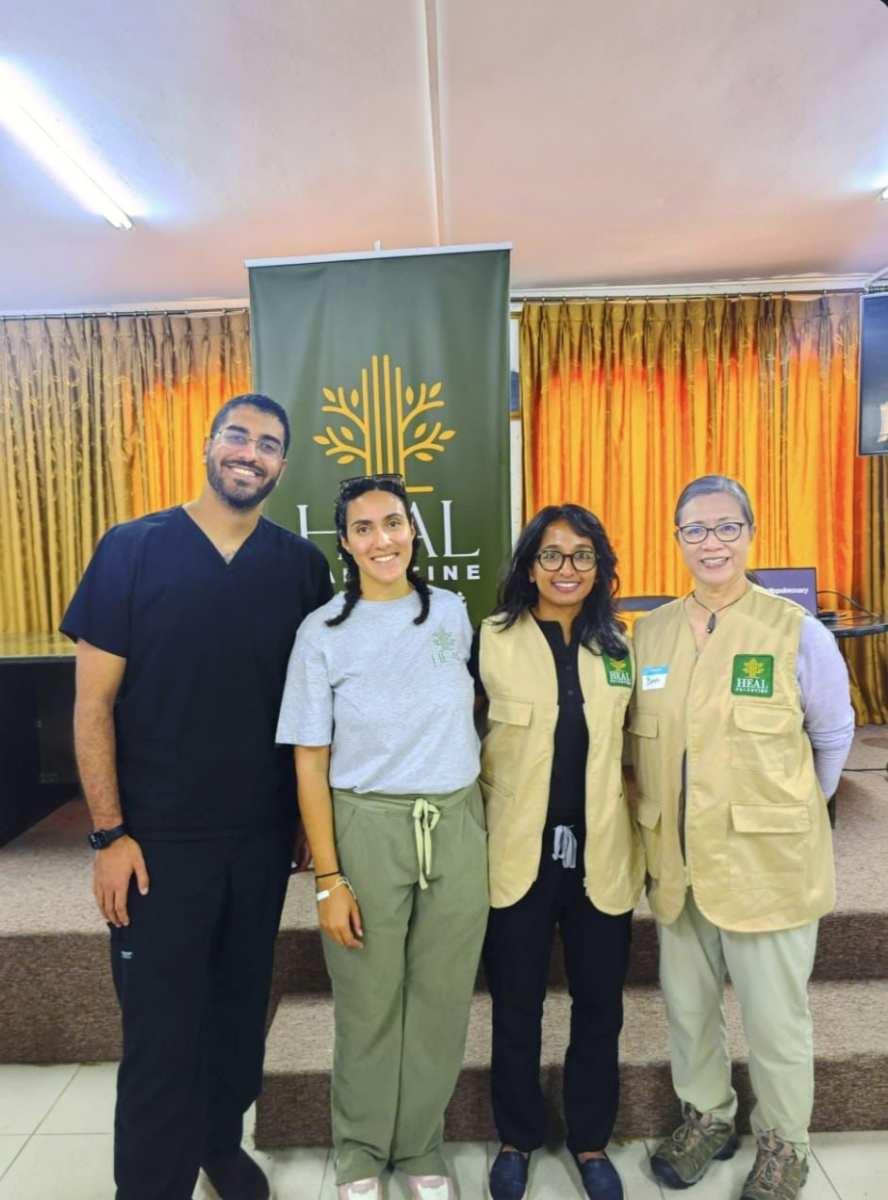We plan to travel to Rafidia Surgical Hospital in Nablus, Palestine, in September 2025 to teach an in-person, train-the-trainer Point of Ultrasound (POCUS) course to physicians working in the emergency and surgical departments for one week. The geopolitical situation in the occupied Palestinian territory, including the West Bank where Rafidia is located, faces great difficulty when it comes to resources, both equipment and personnel.
HEAL Palestine, a registered 501(c)3 based in the United States, which we will be working with, has identified that ultrasound (US) training as a need at Rafidia. Presently, the hospital has ultrasound devices as well as devices that can connect the ultrasound machines to computers to be able to “screen mirror” and save images to the computers. After delivering the US content, we will continue the training longitudinally remotely by using the devices already available. After 9 months to 1 year, we will follow up with the participants virtually and certify them as able to train other physicians. This contributes to capacity building as it creates a cohort of highly trained physicians who are not only able to use their new US skills, but are also able to continue training others locally, only relying on us as needed.
Palestinian physicians and their patients will ultimately benefit from this project. As I have previously published (Aly et al., 2025), Palestinians in the West Bank have been disproportionately subject to traumatic injuries and deaths due to conflict-related violence. While the root cause requires a political solution, morbidity and mortality can be offset in the interim by building strong emergency systems (Alharbi et al., 2021).. Ultrasound has become the cornerstone of a rapid and cost-effective imaging modality, resulting in quick diagnoses that can facilitate definitive care. Given that the hospital has ultrasound machines, we hope to increase capacity by ensuring faculty members possess high-quality skills and that they can pass on these skills to other physicians.
Aly S, Mossolem F, Khalil A, Surapaneni T, Traboulsi AA, Aldadah W, Reid E, Hajat S. Occupation, displacement, and violence in the West Bank: A retrospective analysis of data from 2014-2024. PLOS Glob Public Health. 2025 Jun 25;5(6):e0004829. doi: 10.1371/journal.pgph.0004829. PMID: 40561106; PMCID: PMC12193732.
Alharbi RJ, Shrestha S, Lewis V, Miller C. The effectiveness of trauma care systems at different stages of development in reducing mortality: a systematic review and meta-analysis. World J Emerg Surg. 2021 Jul 13;16(1):38. doi: 10.1186/s13017-021-00381-0. PMID: 34256793; PMCID: PMC8278750.
The expected impact is an increase in POCUS proficiency among physicians across various specialties in Nablus, with the capacity to train others in the West Bank. We will verify skills in a post-test, utilizing the devices and technology we have obtained to assess the quality of images and probe manipulation. rapidly make life-threatening diagnoses, and also teach learners in the future who can pay it forward.






This report provides a summary of the in-person Point of Care Ultrasound (POCUS) course conducted for physicians at Rafidia Surgical Hospital from September 14 to September 18. The course aimed to strengthen Rafidia’s healthcare system and increase efficiency by enhancing physicians’ practical skills and theoretical knowledge in the application of ultrasound at the patient’s bedside, facilitating timely and accurate clinical decision-making. To make this course sustainable and self-reliant in the future, trainers will be identified for a dedicated “train the trainers” course. These trainers will then be able to conduct the course themselves in the future, ensuring continued POCUS training across Rafidia hospital and the remainder of the West Bank without reliance on future foreign missions.
The main limitation for attending all the sessions was related to the physicians’ current work duty schedule, although several made efforts to attend before and after their shifts, and even by having someone cover their shifts for a few hours. We were highly impressed by the level of dedication to learning.